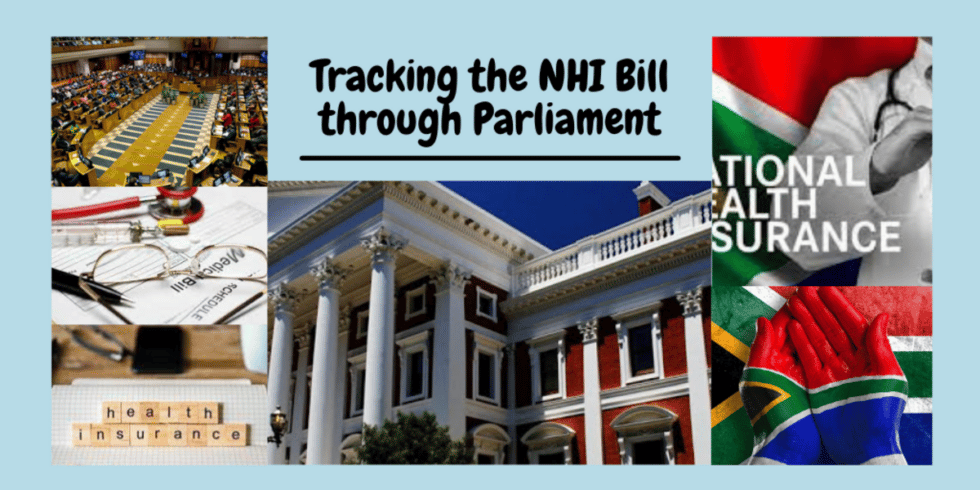
According to the Committee, the B-Bill reflects “all the proposed amendments and comments forming part of the “new” NHI Bill.
Solidarity already successfully approached the court in June 2022 when sections 36 to 40 of this legislation were declared unconstitutional.
“In the run-up to next year’s election, and in order to canvass cheap votes, the ANC government insists on pushing through this law while they are fully aware that their own system cannot support it. They are misleading South Africans by saying that the NHI will promote healthcare in South Africa while concealing the fact that healthcare is readily available, but that the officials managing these essential services do not have the political will to do what is necessary to improve the quality of health services that must be delivered,” said Peirru Marx, Network Coordinator of the medical industry at Solidarity.
Marx says government should rather effectively utilise its budget for healthcare to repair the current system and apply better management in state institutions, instead of hijacking the private sector and forcing it to disguise its failure in the medical industry.
“Implementing the NHI will undoubtedly result in a disaster in the medical industry. The government is simply not to be trusted. Their history of abuse of power, mismanagement and corruption will undoubtedly compromise the quality of medical care. We are also worried about the number of healthcare practitioners who have indicated that they will not work in these circumstances. There is also prevailing concern about the complete collapse of the free market in this sector as a result of the NHI,” Marx argued.
“Solidarity is meeting with its legal team and will immediately take action if the NHI is approved as final. We will not stand by as our healthcare practitioners are handed over to the government. We will not be quiet while ordinary citizens are forced to use a system where medication and healthcare might possibly work the same as loadshedding,” Marx concluded.
The Health Portfolio Committee adopted the B version of the bill with six ANC MPs and the committee’s chair voting in favour while MPs from the DA, Freedom Front Plus and the EFF voted against it. The next stage of the process to sign the Bill into law is for it to go to the National Assembly where it is expected to be passed after which it will be deliberated in the National Council of Provinces (NCOP) for consensus.
Last week the DA condemned what it called the ANC’s “bulldozing” of the Bill through the Portfolio Committee “without amendments from opposition parties, despite overwhelming legal opinions and arguments to do so”.
“We reiterate that the NHI Bill will bankrupt South Africa and not solve its medical crisis. The lack of feasibility studies and impact assessments in a post-COVID-19 world, where the economy looks vastly different from what it did, is concerning,” said the DA’s shadow Minister of Health, Michele Clarke.
She says the timelines proposed in the original bill are also fatally flawed. The Bill makes provision for two phases, phase 1 between 2017 – 2022, and phase 2 between 2022 – 2026.
“The timeline for phase 1 has come and gone and we are almost halfway through phase two – before the Bill has even been made law. The ANC’s attempt to shift the goalposts to later dates is not acceptable. The prevailing economic circumstances, levels of corruption, and the quality of current healthcare must be taken into consideration,” Clarke said.
“Without a financial certificate of approval or budget approval from the Minister of Finance, the Bill cannot even pretend to be valid and constitutional. We will continue to fight against this dangerous bill in the House and National Council of Provinces and have submitted written questions to the Minister of Finance to request a copy of a financial certificate of approval and a full outline of the budget for NHI,” Clarke said, calling on the ANC to be transparent and provide these documents “to prove that the ruling party is not using this bill as a mere election campaign tool for 2024”.
Discovery Health CEO Ryan Noach told Business Day that he was disappointed that there was little change in the amended version of the bill. He reiterated that Discovery Health does not support the single funder model proposed by the bill, nor its restriction on medical schemes to only offer cover for services not included under NHI. He said the Portfolio Committee’s decision not to make changes to the bill that would enhance the feasibility and effectiveness of the NHI Fund could result in the bill being challenged through various legal avenues and possibly being contested on constitutional grounds.